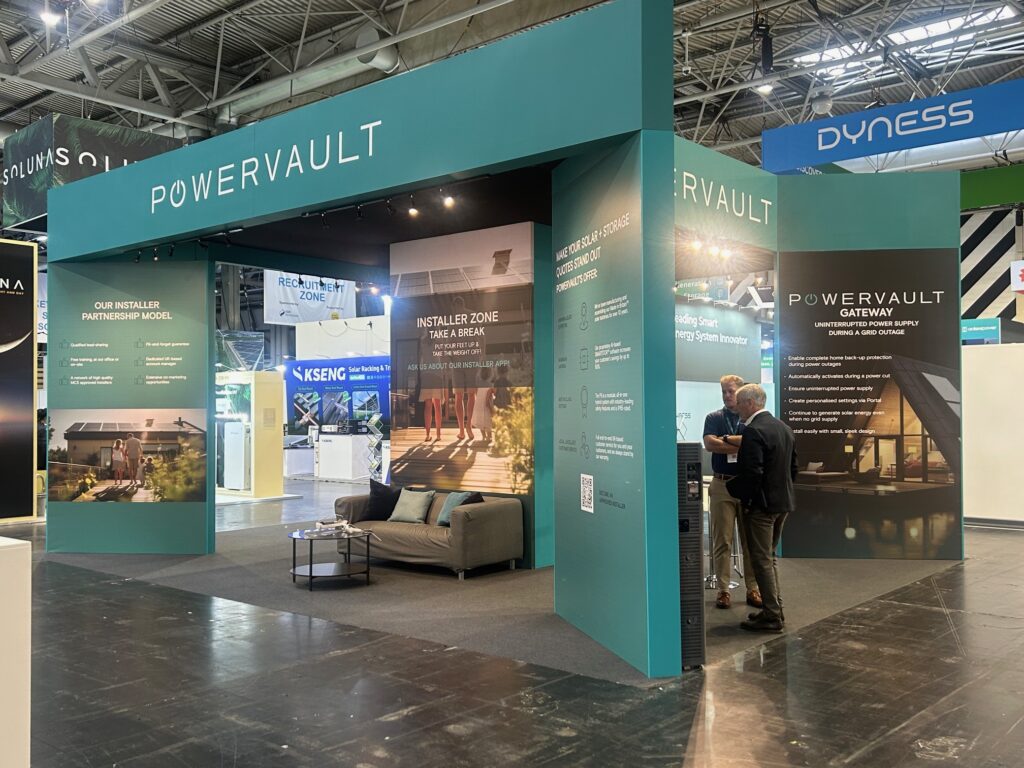InsightPowervault: GreenTech Business Secures Investment to Power the Future
We can’t control when the sun shines or the wind blows – so energy storage is absolutely key to our transition from fossil fuels to renewables. Right now, there are times when wind turbines have to be switched off because more energy is being generated than the grid can cope with. Equally, as a nation we are still firing up fossil fuel powered stations during times of excess demand.
Joe Warren, Powervault’s CEO, is passionate about the importance of the company in providing a road map for consumers to zero carbon. He said: “We’re delighted to close our £2m funding round including support from the Greater London Investment Fund. Greener energy is essential for a sustainable future and Powervault is a clean yet simple way for people and companies to save money and reduce CO2 emissions. We are at the start of a revolution in the way we generate and use energy. Electricity consumption is set to double as we move from heating our homes with gas and fuelling our cars with petrol to using clean renewable energy. To do this we need to store wind and solar power which often comes along at the wrong time. Powervault is key to achieving this.”
Powervault was founded in 2012 and has from the outset been a trail blazer. Powervault’s vision is for its smart battery to be as commonplace as the dishwasher. It is on a mission to save customers money and reduce carbon emissions both directly, by storing low cost renewable energy and also indirectly by encouraging energy efficiency and the use of renewable technologies. To date Powervaults have typically been used by homeowners with solar panels to store their surplus solar energy in the day to be used in the evening. The roll out of smart meters and ‘time-of-use’ tariffs make the product of potential interest to millions more customers. When energy is cheap Powervault automatically fills itself up; when it’s more expensive, it supplies the cheap electricity into the house, reducing the load on the grid at peak times and saving customers up to 50% of their electricity bill. Powervault expects smart time-of-use tariffs to become widespread over the coming years, growing the potential market size to 25 million homes.
The funding secured in this round will be used to grow its marketing and development teams – offering new green jobs at a time when they are needed most. The funds will also be used to develop exciting new product features.
Paul Shadbolt, Senior Fund Manager for The FSE Group, which manages the £55 million GLIF debt fund on behalf of Funding London, comments: “No one can deny the need to find greener technology to power almost every aspect of life. The energy sector is aware of the substantial need to combat climate change which can only support demand for Powervault. We are delighted to be supporting Joe and his team as they help people lower their bills and their carbon footprint.”
Maggie Rodriguez-Piza, CEO at Funding London, adds: “An accelerated transition to a greener economy is essential to avoid irreversible damage to the environment. I believe by supporting companies like Powervault, who are building a sustainable future for all, we are helping change the path of early stage investing. We are thrilled to support Joe and the team as they continue their mission to encourage adoption of renewable energy technologies.”
GLIF is a £100m initiative to help address the SME finance gap in Greater London, promoting economic growth through enterprise and an inclusive and sustainable economy. £55m of debt funding is available, via loans between £100,000 and £1m, to early-stage and established SMEs looking to scale-up and realise their growth ambitions. GLIF is financed through the European Investment Bank (EIB), European Regional Development Fund (ERDF), London Waste & recycling Board (LWARB) and Funding London’s Legacies.
Read more...Recent insight
Energy insight in your inbox
Subscribe to Powervault’s email newsletter and be the first to hear about new products, plus get all the latest news, analysis and insight from Powervault.


